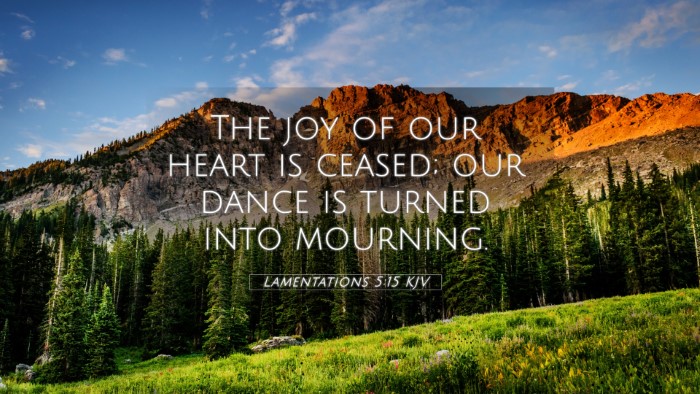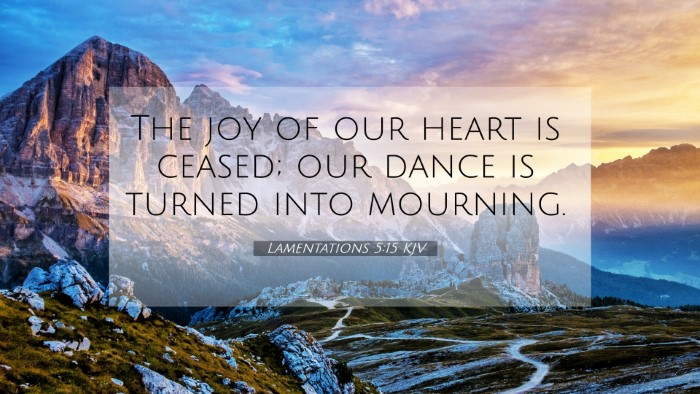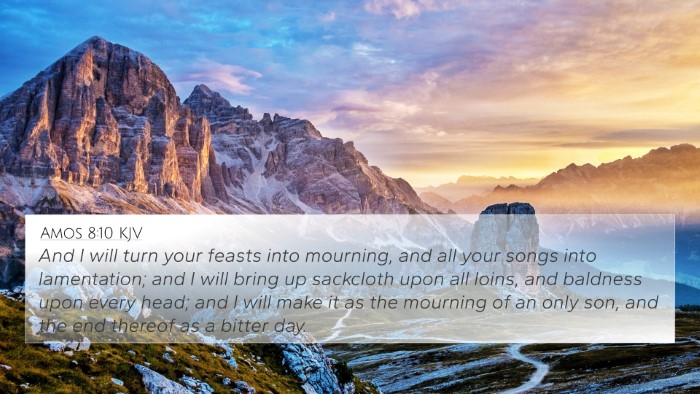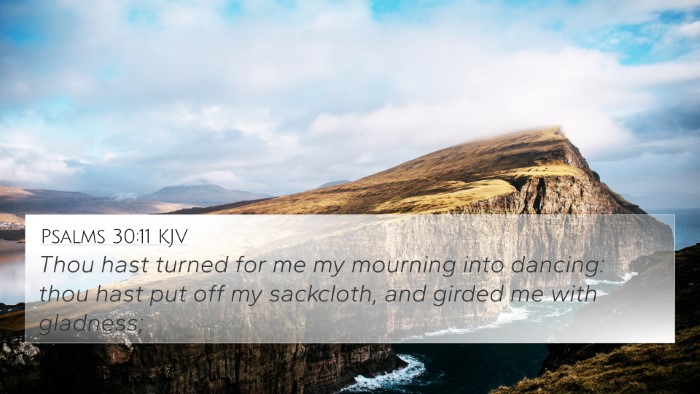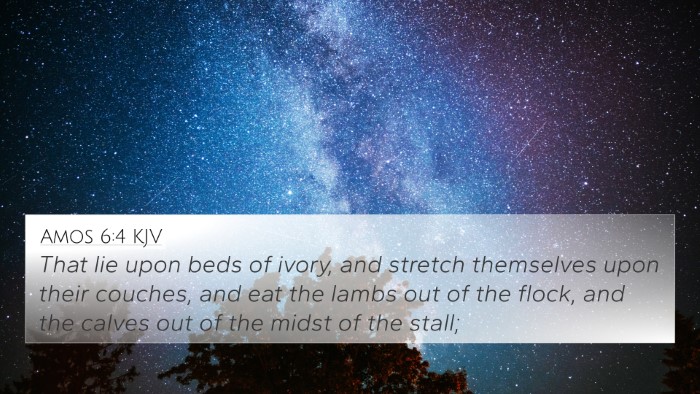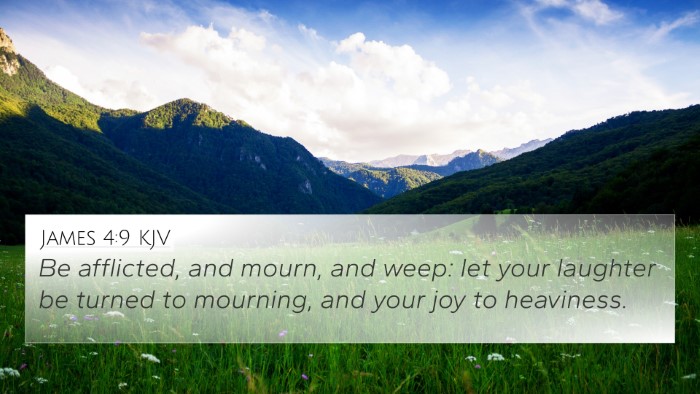Lamentations 5:15 Meaning and Interpretation
Bible Verse: Lamentations 5:15 - "The joy of our heart has ceased; Our dancing has turned into mourning."
Summary of Lamentations 5:15
This verse encapsulates a poignant reflection on loss and despair following the destruction of Jerusalem. The "joy of our heart" denotes the deep emotional and spiritual fulfillment that once characterized the lives of the people. Its cessation signifies the profound effects of trauma, where celebration has transformed into mourning.
Commentary Insights
-
Matthew Henry:
Henry emphasizes the lamentation of the Hebrew people in this verse, pointing to how the gravity of their circumstances has overshadowed their previous joy. The communal dance, once a symbol of celebration, now reflects their deep sorrow. The joy of the heart symbolizes the inner peace and happiness provided by God, which has now been lost due to their sins and resulting consequences.
-
Albert Barnes:
Barnes provides insight into the cultural context, noting that dancing is often associated with joy and celebration in the Hebrew tradition. The transition to mourning illustrates the complete reversal of their fortunes, showing the stark reality of the people’s suffering and the loss of spiritual vitality. He aligns this verse with a broader biblical theme of the effects of sin which leads to profound sorrow.
-
Adam Clarke:
Clarke expands on the implications of the statement by discussing how the cessation of joy links directly to the state of the nation's heart. He identifies that this mourning reflects both physical loss and deeper spiritual desolation. Clarke's commentary suggests an inter-textual understanding, where he links this sorrow to similar experiences throughout the scriptures, illustrating a consistent theme of loss due to disobedience.
Bible Verse Cross-References
This verse relates to several other passages throughout Scripture that explore themes of joy, mourning, and the consequences of sin. The following verses provide context and deeper understanding:
- Psalms 30:11 - "You have turned my mourning into dancing; you have put off my sackcloth and clothed me with gladness." This verse highlights the transformative power of God, contrasting joy with mourning.
- Isaiah 61:3 - "To bestow on them a crown of beauty instead of ashes, the oil of joy instead of mourning." This aligns with the theme of restoration and hope following despair.
- Jeremiah 31:13 - "I will turn their mourning into joy; I will comfort them, and give them gladness for sorrow." Here we see a promise of future joy that echoes the current mourning expressed in Lamentations.
- Ecclesiastes 3:4 - "A time to weep, and a time to laugh; a time to mourn, and a time to dance." This affirms the cyclical nature of emotions and life experiences.
- Romans 12:15 - "Rejoice with those who rejoice; mourn with those who mourn." This verse emphasizes the communal aspect of joy and sorrow, resonating with the corporate lament in Lamentations.
- James 4:9 - "Grieve, mourn and wail. Change your laughter to mourning and your joy to gloom." James calls for a recognition of sin and the seriousness of spiritual state, akin to the themes in Lamentations.
- Matthew 5:4 - "Blessed are those who mourn, for they will be comforted." This beatitude connects mourning with future comfort, leading back to hope amidst despair.
Theological Themes
The implications of Lamentations 5:15 touch upon several theological themes, particularly around sin, communal suffering, and restoration:
- Impact of Sin: The context of Lamentations reflects the consequences of collective sin, a theme found throughout the Bible.
- Human Condition: The expression of sorrow highlights the fragile nature of human joy, echoing in texts that discuss the transient nature of happiness (Ecclesiastes).
- Divine Restoration: While the current state is one of sorrow, the hope of divine restoration is a recurring promise across both the Old and New Testaments.
- Collective Lament: The shared grief of the community is an essential part of the faith journey; it prompts both introspection and communal support through suffering.
Application and Reflection
For many believers today, Lamentations 5:15 serves as a reminder of the consequences of sin and the loss of joy that can result. It offers a call to reflection on personal and communal faith. Recognizing the periods of mourning in life invites an understanding of God’s presence even in challenging times.
In studying this verse within a community context, one can utilize tools for Bible cross-referencing and Bible concordance to identify interconnected themes and provide deeper insight into the spiritual narrative at play.
Conclusion
Lamentations 5:15 is a powerful expression of sorrow that resonates across generations and invites readers to explore their own emotional and spiritual landscapes. By connecting this verse with others, one can see the breadth of biblical teaching on loss, joy, and restoration.
In exploring Bible verses that relate to each other, practitioners can cultivate a richer understanding of God's overarching narrative and the hope found within moments of despair.

